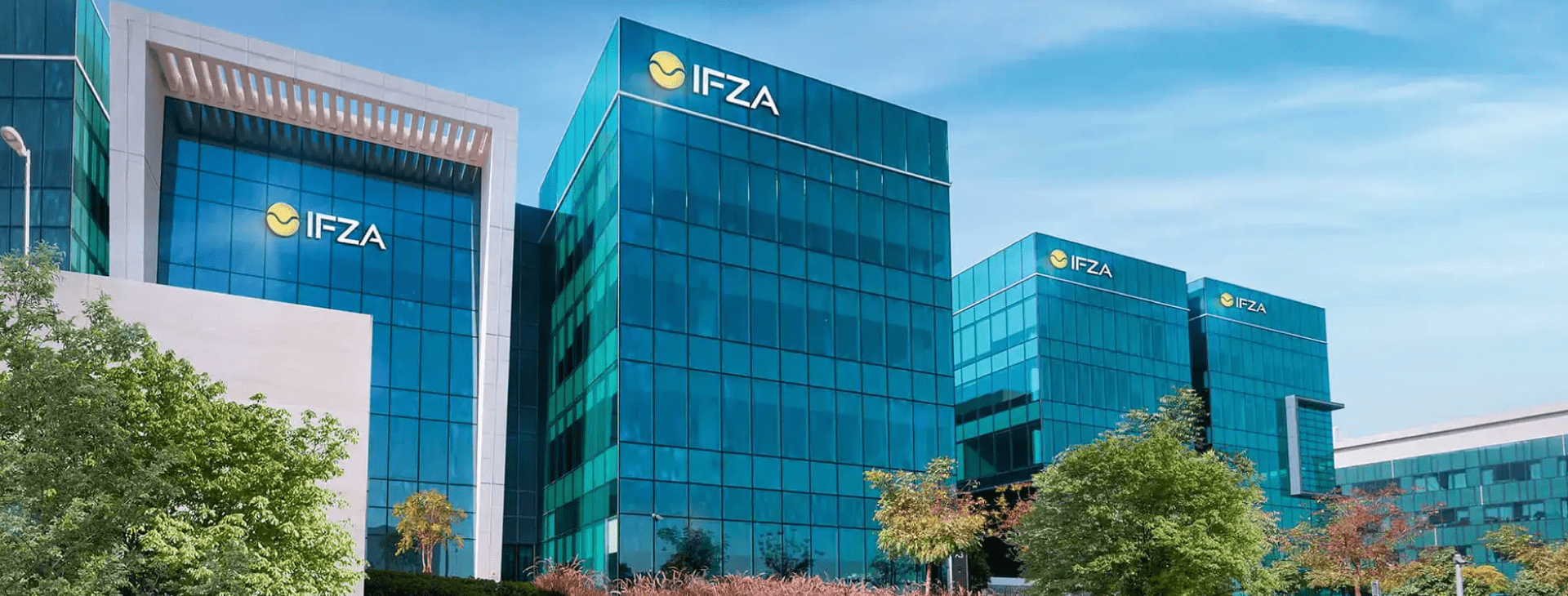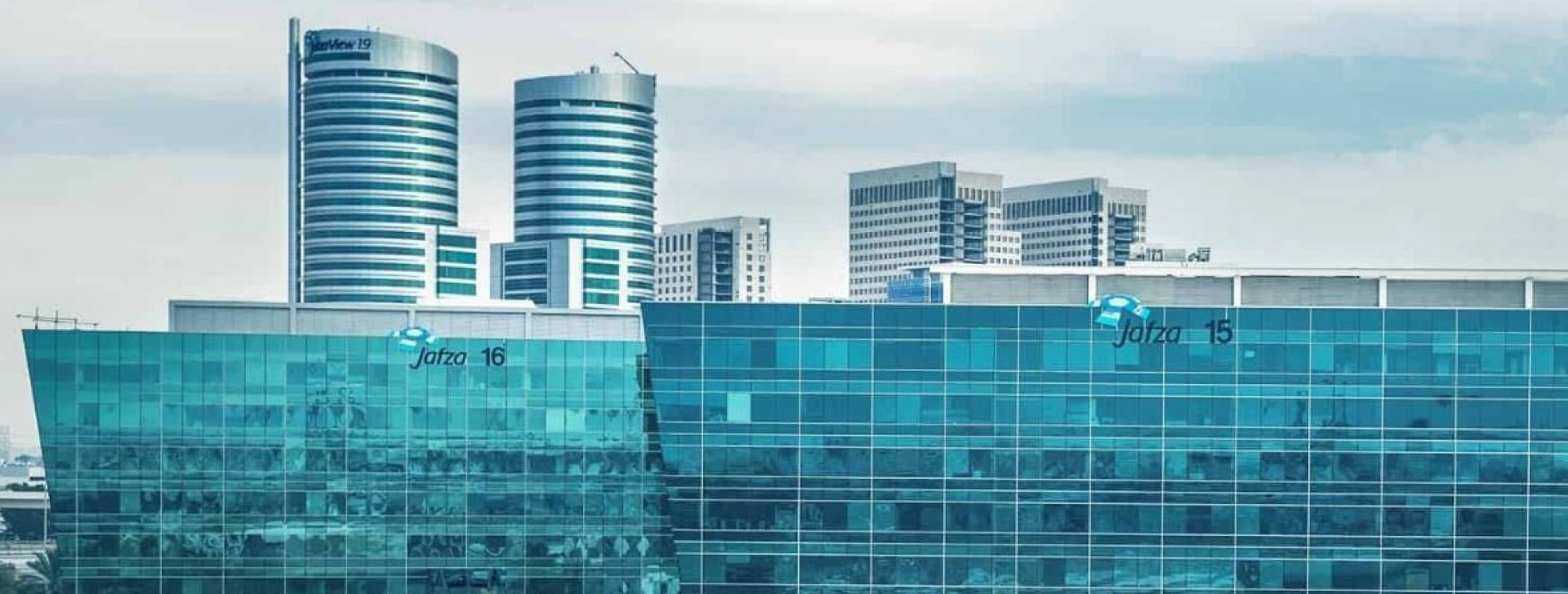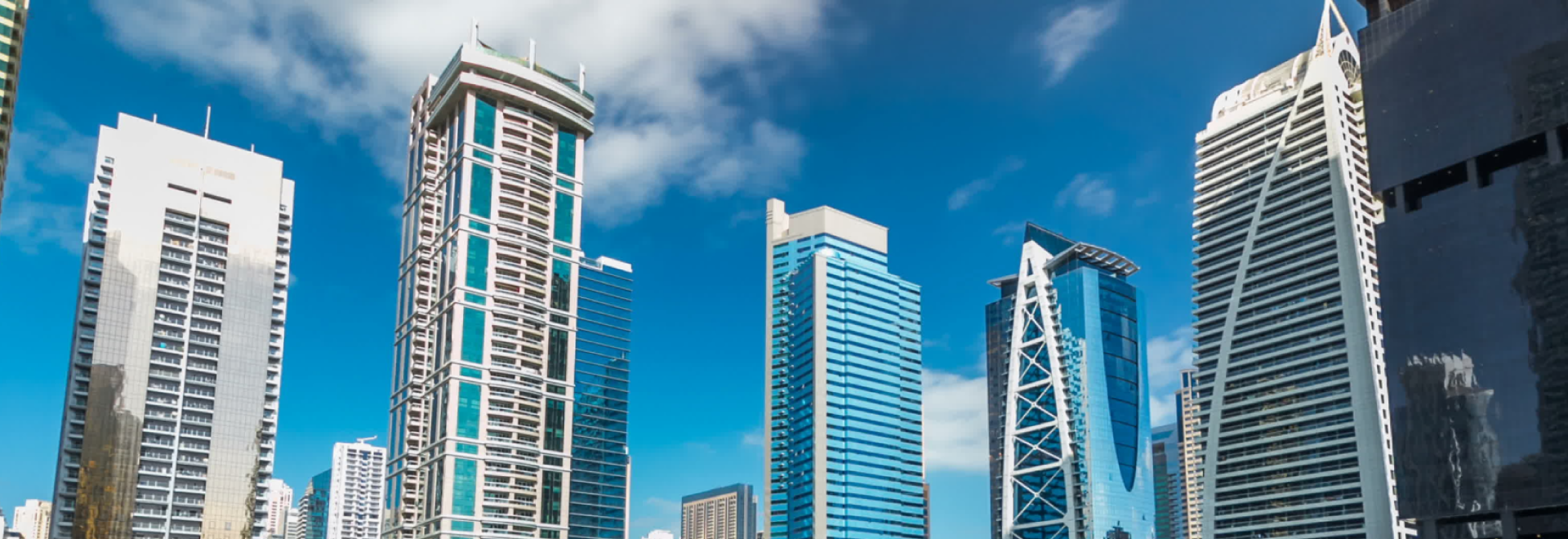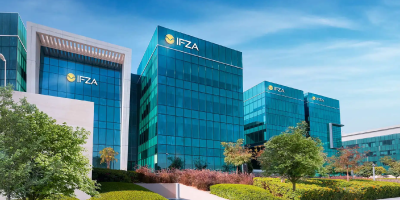Business Setup in Dubai Free Zone
- Lowest Price Guaranteed
- End to End Assistance
- Quick License Issuance
Why Choose Dubai Free Zone for Your Business?
Dubai offers exceptional advantages through specialized free zones designed for business growth and international expansion.100% foreign ownership
100% foreign ownership means you control your business completely without needing a local partner. In Dubai Free Zones, this rule empowers you to make decisions independently. You retain full authority over operations, profits, and strategy. For example, a tech startup can scale globally while keeping ownership intact, unlike mainland setups requiring local sponsorship.Zero Corporate and Personal Tax
Zero corporate (for annual profit that falls under AED 375000) and personal tax boosts your profits directly. Dubai Free Zones eliminate tax burdens, letting you reinvest earnings into growth. A retail business, for instance, saves significantly on overhead costs. This tax-free advantage attracts investors and entrepreneurs aiming to maximize returns without fiscal constraints, unlike high-tax regions.100% repatriation of capital
100% repatriation of capital allows you to transfer all profits abroad. Dubai Free Zones impose no restrictions on moving funds. An export firm can send earnings to its home country effortlessly. This flexibility ensures financial freedom, making it ideal for global businesses needing liquidity across borders without regulatory hurdles.Strategic global location
A strategic global location connects your business to key markets. Dubai Free Zones sit between Europe, Asia, and Africa, offering unmatched access. A logistics company benefits from proximity to major ports and airports. This positioning cuts shipping times and costs, enhancing competitiveness in international trade.Streamlined Business Processes
Streamlined business processes speed up your setup and operations. Dubai Free Zones offer fast licensing and minimal bureaucracy. A consultancy can launch within days, not months. Efficient systems reduce paperwork and delays, letting you focus on growth rather than red tape, unlike complex setups elsewhere.Top Dubai Free Zones for Business Setup
Dubai hosts numerous specialized free zones, each offering unique advantages for specific industries and business types.1. Meydan Free Zone

Housed within the popular Meydan Hotel, this free zone offers one of the lowest trade license costs in Dubai and is fast gaining popularity as the emirate’s go-to business setup jurisdiction. Meydan FZ offers the best Dubai free zone license cost and is preferred by entrepreneurs for the luxurious amenities and community benefits it offers. The free zone offers over 3,500 business activities for a wide range of industry sectors.
2. International Free Zone Authority (IFZA)

International Free Zone Authority (IFZA) offers cost-effective solutions. IFZA, based in Dubai Silicon Oasis, supports startups with affordable licensing. It allows virtual setups and covers trading and consultancy. IFZA ensures 100% ownership and quick registration, perfect for budget-conscious entrepreneurs.
3. Jebel Ali Free Zone (JAFZA)

Jebel Ali Free Zone (JAFZA) excels with its massive trade hub status. JAFZA hosts over 7,500 firms, focusing on logistics and manufacturing. Located near Jebel Ali Port, it ensures seamless global shipping. Businesses enjoy zero taxes and 100% ownership. JAFZA suits exporters needing robust infrastructure.
4. Dubai Multi Commodities Centre (DMCC)

Dubai Multi Commodities Centre (DMCC) leads in commodity trading. DMCC supports over 21,000 businesses, specializing in gold, diamonds, and energy. Its Jumeirah Lakes Towers location offers modern offices. DMCC provides tax-free operations and full profit repatriation, ideal for traders and service firms.
5. Dubai International Financial Centre (DIFC) Free Zone
.png)
Dubai International Financial Centre (DIFC) ranks top for financial services. DIFC hosts over 4,000 firms in fintech and banking. It offers a world-class legal framework and tax exemptions. DIFC’s central location attracts global investors needing a financial hub with strong regulations.
6. Dubai Airport Free Zone Authority (DAFZA)
.jpg)
Dubai Airport Free Zone (DAFZA) shines for logistics and trade. DAFZA, near Dubai International Airport, supports over 2,000 businesses. It provides fast licensing, zero taxes, and excellent connectivity. DAFZA fits companies in aviation and e-commerce seeking speed and access.
Get a Free Quote Now
We will beat any equivalent Offer you have!
Business Types & License Categories
Dubai Free Zones offer various business setup options to accommodate different entrepreneurial needs.
Legal Entity Options
Free Zone Limited Liability Company (FZ LLC)
A Free Zone Limited Liability Company (FZ LLC) allows multiple shareholders with limited liability. FZ LLC protects personal assets from business debts. It suits partners launching a tech firm, for example. This structure offers 100% foreign ownership and flexible share distribution, ensuring control among 2 to 50 investors.
Free Zone Establishment (FZE)
Free Zone Establishment (FZE) provides a single shareholder structure. FZE fits solo entrepreneurs starting a consultancy. It ensures full ownership and liability limited to business assets. FZE simplifies management with one decision-maker. This option, common in zones like IFZA, supports quick setup and tax-free operations.
Branch of Foreign Company
A Branch of Foreign Company operates as an extension of an existing foreign business. It suits firms expanding into Dubai, like a UK retailer opening in JAFZA. The branch retains 100% foreign ownership and follows the parent company’s goals. Liability ties to the parent, offering seamless global integration.
License Categories
Commercial License – Trading, import/export, retail activities
A Commercial License covers trading, import/export, and retail activities. It suits businesses dealing in goods, like electronics importers in JAFZA. This license allows buying, selling, and distributing products locally and globally. Companies enjoy tax exemptions and streamlined customs processes, boosting trade efficiency.
Service License
A Service License includes consulting, management, and professional services. It fits firms offering expertise, such as marketing agencies in DMCC. This license supports activities without physical goods. Service providers benefit from 100% ownership and quick setup, ideal for professionals targeting Dubai’s growing market.
Industrial License – Manufacturing and production activities
An Industrial License governs manufacturing and production activities. It serves factories producing items like textiles in DAFZA. This license enables raw material imports and finished goods exports tax-free. Industrial businesses leverage Dubai’s logistics hubs, ensuring cost-effective operations and global reach.
Freelance/Entrepreneur Permit
A Freelance/Entrepreneur Permit supports individual professional services. It caters to solo experts, like graphic designers in IFZA. Freelance permit offers low-cost setup and full ownership. Freelancers gain residency visas and flexibility, making it perfect for independent professionals serving clients locally or remotely.
Step-by-Step Setup Process
Establishing your business in a Dubai Free Zone involves several straightforward steps.
Select Your Business Activity
The first step in setting up a business in a Dubai Free Zone is identifying your business activity. Free zones cater to specific industries like media, technology, trading, or logistics. Research the activities permitted in your target free zone, as each has unique offerings. For example, Dubai Media City supports media-related ventures, while Jebel Ali Free Zone suits trading and manufacturing. Ensure your chosen activity aligns with your business goals and complies with free zone regulations to avoid delays later.
Choose Your Free Zone
Dubai has over 20 free zones, each with distinct advantages like tax benefits, full ownership, and proximity to ports or airports. Select a free zone based on your business type, budget, and infrastructure needs. For instance, Dubai Internet City is ideal for tech startups, while Dubai Healthcare City suits medical businesses. Compare licensing costs, facilities, and visa quotas before deciding. Contact the free zone authority for detailed insights into their offerings.
Select Company Name
Choose a unique and compliant company name adhering to free zone naming guidelines. Avoid offensive terms, religious references, or names resembling existing entities. Most free zones require you to submit 3-5 name options for approval. For example, in Dubai Multi Commodities Centre (DMCC), names must reflect your business activity. Check availability through the free zone’s online portal and secure approval to proceed smoothly.
Submit Application Documents
Prepare and submit essential documents to the free zone authority. These typically include a completed application form, passport copies of shareholders, a business plan, and proof of address. Some free zones may request additional documents like a No Objection Certificate (NOC) or financial statements. Ensure all paperwork is accurate and meets specific requirements to avoid rejection. Digital submission is often available for convenience.
Receive Initial Approval
Once your documents are reviewed, the free zone authority issues an initial approval. This confirms your business activity and name are accepted, allowing you to proceed. The process usually takes a few days to a week, depending on the free zone. For instance, Dubai South offers fast-track approvals for logistics firms. Address any feedback from the authority promptly to maintain momentum.
Pay Registration Fees
After initial approval, pay the required registration and licensing fees. Costs vary by free zone and business type, ranging from AED 10,000 to AED 50,000 annually. For example, licensing in Dubai Airport Free Zone may cost more due to its premium location. Payments can often be made online or at the free zone office. Retain receipts as proof for the next steps.
Receive License & Registration
Upon payment clearance, you’ll receive your business license and company registration certificate. Licenses come in types like commercial, industrial, or professional, depending on your activity. This step finalizes your legal setup, typically within 1-3 days. For instance, in Dubai Design District (D3), creative businesses get tailored licenses. Keep these documents safe as they’re essential for banking and visas.
Open a Corporate Bank Account
With your license in hand, open a corporate bank account in the UAE. Free zone businesses can choose from local banks like Emirates NBD or international ones like HSBC. Submit your license, registration certificate, and shareholder passports. Some banks offer free zone-specific packages with low fees. This account will handle transactions, payroll, and visa deposits efficiently.
Apply for Visas
Apply for employee and residency visas through your free zone authority. The number of visas depends on your license and office space. e.g., a flexi-desk might offer 1-3 visas. Submit passport copies, photos, and fees (around AED 3,000-5,000 per visa). Processing takes 5-10 days. Approved visas grant 2-3 years of residency, renewable as needed.
Dubai Free Zone Business Setup Costs
The cost to set up a business in a Dubai Free Zone ranges from AED 10,000 to AED 50,000. The total cost includes licensing, registration, and visa fees. Costs vary by free zone and business type. For example, Dubai Multi Commodities Centre (DMCC) charges around AED 20,000 for a trading license, while Dubai Internet City offers tech licenses starting at AED 15,000. Additional expenses include office space, flexi-desks cost AED 5,000 annually, and visas cost AED 3,000-5,000 each. Bank account setup is free with some banks like Emirates NBD. Research your free zone’s fee structure, as prices reflect location and facilities. Save costs by choosing a package deal with InZone.
Documentation & Requirements for Business Setup in Dubai Free Zone
The documentation and requirements needed for business setup in a Dubai Free Zone include a completed application form, passport copies, and a business plan. Submit these to the chosen free zone authority. Passport copies are required for all shareholders. A business plan outlines your activities and goals. Additional documents include proof of address and a No Objection Certificate (NOC), if applicable. Some free zones, like Jebel Ali Free Zone (JAFZA), may request financial statements. Ensure accuracy in all paperwork. Digital submission is available in most free zones. Contact the authority for specific needs, as requirements vary slightly.
FAQs
Here are answers to the most frequently asked questions about Business Setup in Dubai free zones.
Free zone companies cannot directly do business in mainland Dubai without a local partner. They operate within the free zone’s jurisdiction. To trade in mainland Dubai, hire a local distributor or register a mainland branch with a local sponsor. For example, a Dubai Multi Commodities Centre (DMCC) company needs a mainland partner for local sales. Check free zone rules for specific trade options.
The minimum capital requirement varies by free zone and ranges from AED 0 to AED 50,000. Some free zones, like Dubai South, require no minimum capital. Others, such as Jebel Ali Free Zone (JAFZA), may demand AED 50,000 for industrial setups. Confirm with your free zone authority, as it depends on business activity.
The entire setup process takes 1 to 4 weeks. It includes name approval, document submission, and licensing. For instance, Dubai Internet City offers fast approvals in 5-7 days. Delays occur if documents are incomplete. Plan for 2 weeks on average across most free zones.
Yes, you can sponsor your family with a free zone visa. Each visa allows sponsorship for dependents like spouses and children. The number depends on your license, typically 1-3 visas per flexi-desk. Submit passport copies and pay AED 3,000-5,000 per visa. Processing takes 5-10 days.
Banking facilities available include corporate accounts, online banking, and multi-currency options. Open an account with banks like Emirates NBD or HSBC using your license. Free zones offer tailored packages with zero fees for setup. Access loans and trade finance, depending on the bank’s offerings.
The cost to set up a company in a Dubai Free Zone ranges from AED 10,000 to AED 50,000. This covers licensing, registration, and visas. For example, Dubai Airport Free Zone charges AED 25,000 annually. Add AED 5,000 for a flexi-desk. Costs vary by free zone and activity.
The cheapest free zone company setup in UAE is Sharjah Media City (SHAMS) at AED 5,750. The cost includes a basic license and registration. Dubai South offers setups from AED 7,500 with no capital requirement. Compare fees, as cheaper options limit visa quotas and office space.
We accept the following credit cards. Our website is secured with SSL 256 Bit Encryption.
- We provide 30 day money back satisfaction guarantee to all our clients.
- We provide 100% confidentiality to all our clients.
- We provide a dedicated account manager.
- We provide bank account opening assistance through our well-established banking relationships.










 Founder's Podcast
Founder's Podcast 
